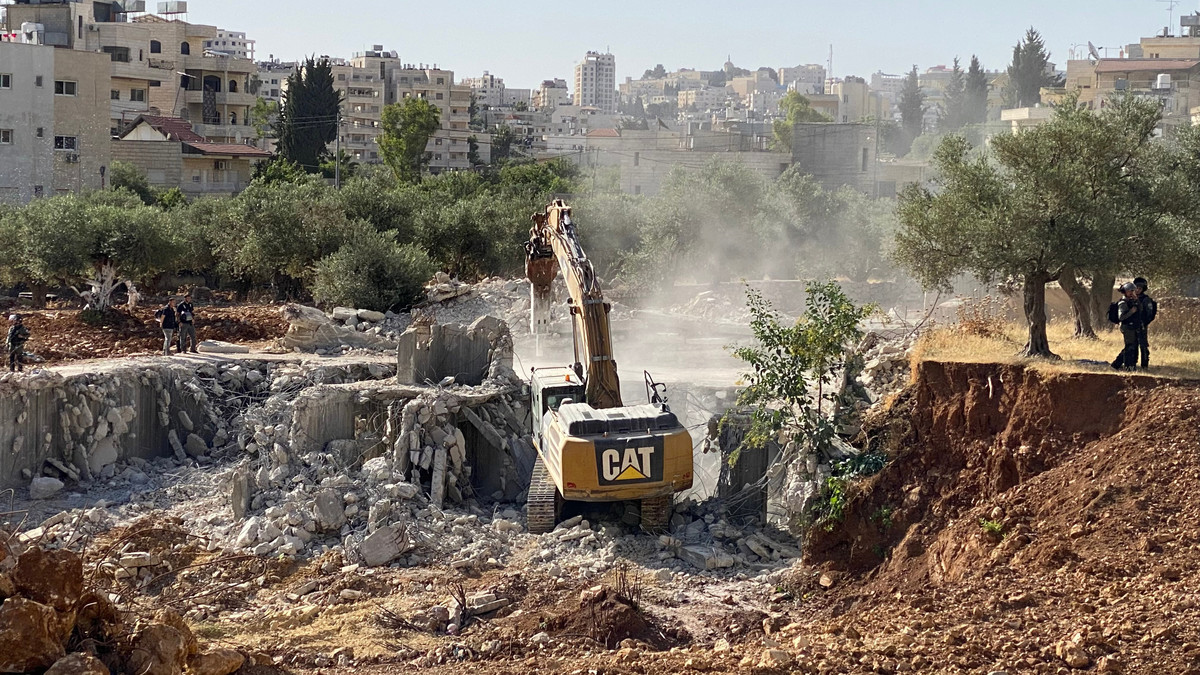The Palestinian Centre for Human Rights (PCHR) recently testified before a United Nations special committee to investigate Israeli practices.
PCHR said in a press statement that it testified before the United Nations Special Committee to Investigate Israeli Practices Affecting Human Rights of Palestinian People and Other Arabs of Territories Occupied in 1967.
PCHR elaborated that its testimony reviewed the violations committed by the Israeli Occupation Forces (IOF) against the Palestinian people and the ongoing deterioration of the human rights situation and international humanitarian law in occupied Palestinian territory (oPt).
It went on to say that it particularly shed the light on the living conditions of Palestinian prisoners in the Israeli jails, as at least 4600 prisoners, including 172 children and 31 women, suffer cruel, inhuman and degrading living conditions in Israeli prisons in addition to solitary confinement in cells and an administrative detention policy against 682 Palestinian prisoners, who are deprived of family visits.
As part of its testimony, PCHR reviewed the deterioration of health conditions particularly in light of the outbreak of coronavirus among prisoners and precautionary measures not taken to curb the outbreak of the virus as well as the medical negligence policy against prisoners that resulted in the death of dozens of prisoners. The last of which was on 02 July 2022 when the death of a Palestinian female detainee, Saadia Salem Radwan Matar (64), from Ethna village in western Hebron, was declared in the Israeli Damon prison due to medical negligence.
PCHR’s testimony also addressed Israeli-imposed closure policy on the Gaza Strip.
“This policy constitutes a collective punishment measure against the civilian population and violation of many rights, including the right to health.”
For example, IOF imposed a series of restrictions on the Gaza patients, who are in need for travel permits necessary for their treatment, and in order to consider the applications submitted by patients, some documents shall be included. These conditions and obstacles imposed by the Israeli forces are not for approving the permit for treatment but are only a precondition for accepting the application in form.
It should be mentioned that hundreds of patients’ permits are daily rejected under security reasons and excuses in addition to many cases that are given permits to travel via Beit Hanoun “Erez” Crossing for treatment but delayed for hours until they miss their appointments at the hospitals they are referred to.
In its testimony, PCHR mentioned the obstacles imposed by the Israeli forces to restrict the Gaza Strip patients’ freedom of movement in order to deny them access to the proper treatment. In most cases, these restrictions have unfolded catastrophic consequences on the life of patients that would lead to their death.
Moreover, PCHR’s testimony reviewed IOF’s systematic policy of withholding the bodies of deceased Palestinians by issuing laws and judicial decisions affirming the detention of those bodies as Israel is the only state that pursues this policy, considering it as a file for political bargaining. Also, IOF bury the bodies of hundreds of Palestinians in the so-called cemeteries of numbers, referring that this person becomes just a number for them. Additionally, in many cases, there are irresponsibility, ambiguity, and lack of knowledge about where these bodies are buried, bringing into question the inhumane and illegal use of these bodies. It is noteworthy that after 2015, IOF still withholds the bodies of 325 Palestinians; 254 are buried in the cemeteries and 71 are kept in the morgues.
Regarding the absence of justice in the Israeli judiciary, PCHR pointed out to the Israeli judiciary’s role in legally covering the crimes committed by the Israeli forces against Palestinian civilians, reviewing the difficulties faced by the victims of human rights violations when accessing the judiciary in light of the current laws that prevent victims from seeking redress and compensations.
The testimony addressed a series of Israeli obstacles, including the amendments to the 1952 Civil Wrongs (Liability of the State) and financial constraints that have increased the burden on Palestinian victims in case they decided to resort to the Israeli judiciary. These obstacles culminated in Amendment 8/2012, which exempts Israel from liability for the damage caused to victims during a military operation.
Also, PCHR’s testimony reviewed the response of the Assistant Attorney General for Special Operations in Israel on 23 August 2020 saying that the complaints filed by PCHR on the 2012 Israeli offensive “Operation Pillar of Defense” will be dismissed by the Legal Advisor to the Government as the Military Prosecution lost some information and files.
“This response reflects the Israeli Judiciary’s double standard policy against the Palestinians as the judiciary only justifies and covers up IOF’s crimes and violations when it comes the Palestinian victims,” it stressed.
During its intervention, PCHR urged the international community to hold its moral and legal responsibilities and seek redress for victims; particularly that absence of accountability has made Israel a state above the law and that its legislative, legal, and executive authorities are involved in all crimes committed against civilians, rendering resorting to the International Criminal Court legitimate for Palestinian civilian victims in light of absence of justice in the Israeli Judicial System.
The Committee’s visit came to view the catastrophic conditions of the Palestinian people by listening to victims, eyewitnesses, representatives of civil society organizations and others, to conclude a report that will be later filed to the United Nations General Assembly (UNGA) in its 77th session.
Shortlink for this post: https://daysofpalestine.ps/?p=21764





